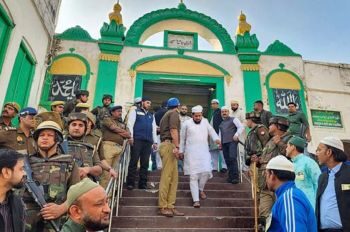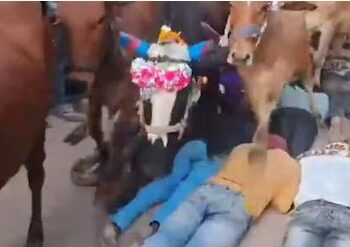One of the colonial remnants that continues even after the independence is the State Governorship. During the British rule, rather than the elected representatives in the Ministry of the Provinces (presently state), the respective Governors were vested with more power. This feature in the Government of India Act 1935 was opposed at the time of freedom struggle. What was opposed then is still continuing in the independent India, as the formal head of State government.
The State government ruled by the State Cabinet is directly responsible to its people. But the Union government has nominated Governor as the head of the State. Constitutionally the Governor has to act as per the advice of the State Cabinet. The State Governors cannot act independently except on a few extraordinary occasions. The apex court affirmed it in many judgments.
The Governor of Tamil Nadu has been acting beyond his functional boundaries, commenting on the ideology and policies by which the ruling party has been elected by the people. Many of the Bills passed by the Legislative Assembly still await his approval for an inordinate period without specifying any reason.Recently a petty offender throwing petrol-explosive in front of the Raj Bhavan, Chennai, was arrested by the Police authority who were on the duty of security. FIR was registered and the offender was placed in remand at Puzhal prison after producing him before the judicial magistrate. The act of the offender is condemnable. When proper action has been initiated in time, the press release of the Raj Bhavan expressed that the offence is due to the continuous comments of the ruling party and its alliance against the Governor. The Raj Bhavan has further said that a group of offenders, turned up before the Raj Bhavan, entered into action but no police action was initiated in this regard.
The Director General of Police along with the Commissioner of Chennai Metro Police have responded that it was not a group of offenders, but a single person who carried out the offence and due action has been taken and investigation also continues. The motive for the offence attributed by the Governor himself is not substantiated. Besides it has been restated by the Governor that during his visit on an earlier occasion to Dharmapuram Mutt, his convoy was damaged by protestors holding black flags, and police refused to take action against them. On this allegation also the police authority have responded that no damage was caused to the convoy. After the Governor’s car passed on, a black flag was thrown on one of the police van for which some were arrested and FIR was also registered. The authorities are pursuing the case.
More than these allegations, the Governor states that the law and order has deteriorated in the State which was known as haven of peace even at the time of the demolition of Babri Masjid! What is the intention of the Governor? He wants to run a parallel Government.
However it is needless to point out it is the democratic polity of our country that, all the vital positions, from the President of India, the Prime Minister and the State Chief Ministers are either directly or indirectly elected by the people. It is the core principle of democracy – government of the people, by the people and for the people.
The Governor is only a titular head who has to carry out the decisions of the Cabinet and his other public welfare tasks. He has no option to impose his will on the Cabinet on policy matters.
The allegations by the Governor and the response from the police authority have been narrated for due analysis.
Let not the Governor ‘self-degrade’ the Governorship!









